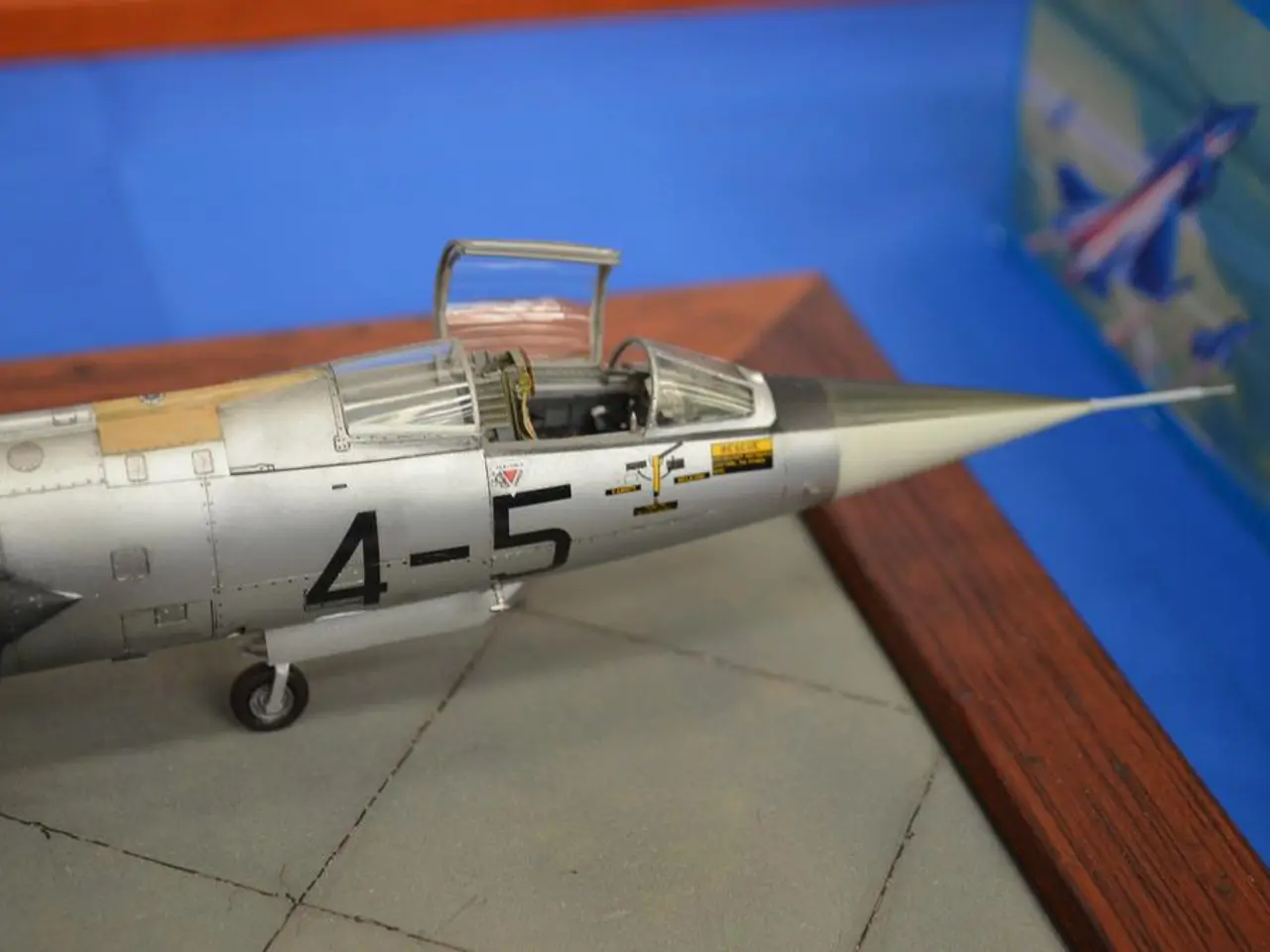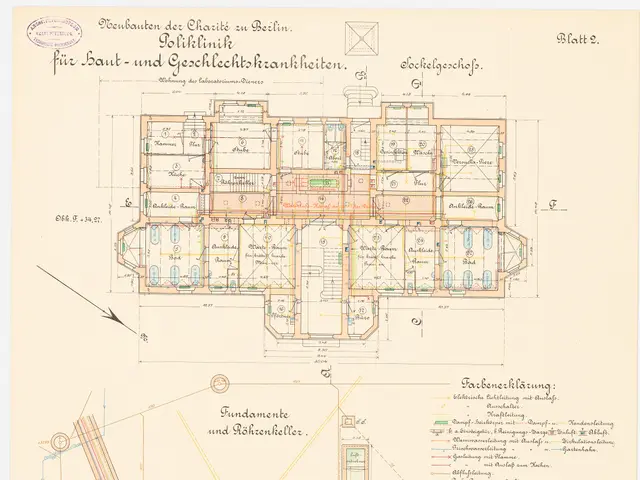Airport entrance now unlocked!
In a significant move for the drone industry, Rheinmetall has taken over the operational site of the insolvent Leichtwerk AG in Brunswick, a location renowned for its expertise in aerospace and drone-related technologies. This acquisition is set to bring about several potential implications and future developments in Brunswick's drone technology.
Potential Implications
The acquisition of Leichtwerk AG's site provides Rheinmetall with access to specialized infrastructure and engineering talent dedicated to lightweight aerospace structures and drone components. This strengthens Rheinmetall's ability to develop advanced drone platforms with improved performance parameters such as endurance, payload capacity, and stealth.
The integration of Leichtwerk’s innovative design and manufacturing capabilities could accelerate prototyping and testing cycles for new drones, leading to faster introduction of cutting-edge UAVs tailored for both military and civilian applications including reconnaissance, surveillance, and electronic warfare.
Leichtwerk AG’s site likely includes testing and validation environments. Rheinmetall can expand these facilities to conduct comprehensive endurance, aerodynamic, and electronic system tests, enhancing drone reliability and mission readiness.
With growing global demand for drones in defense and commercial sectors, ownership of this site reinforces Rheinmetall’s position as a key European player in UAV manufacturing, potentially increasing exports and partnerships with NATO and EU countries.
Integration permits cross-utilization of existing technologies such as sensors, communication systems, and weapon integration, facilitating development of armed or multi-role drones that fit into Rheinmetall’s broader defense ecosystem.
Future Developments
The focus in Brunswick is on the development and testing of unmanned flight systems. Future developments may include next-generation autonomy and AI for autonomous navigation, target recognition, and swarm capabilities.
Hybrid and electric propulsion systems could emerge, enhancing operational stealth and range. Modular drone platforms that allow rapid adaptation of payloads or sensors for diverse missions, supported by flexible manufacturing lines, are also on the horizon.
Enhanced connectivity with Rheinmetall's command and control systems for real-time data sharing and coordinated operations in combined arms scenarios is another area of potential growth.
The acquisition also opens up opportunities beyond defense, with expansion into civilian and commercial drone applications such as infrastructure inspection, environmental monitoring, or logistics.
In summary, Rheinmetall’s acquisition of the Leichtwerk AG site is poised to boost innovation, production, and testing capabilities in drone technology, potentially influencing both military and commercial UAV markets through advanced, reliable, and versatile drone systems.
The Luna NG drone, which was previously produced and tested at the site, is an air-launched unmanned close reconnaissance equipment of the next generation. The Bundeswehr has ordered 13 complete systems from Rheinmetall for €200 million, including five reconnaissance drones, two ground control stations, two launch vehicles, two antenna masts, a workshop equipment, and three transport platforms.
The operations in Brunswick are not related to technical documentation but rather to concrete projects, such as the Bundeswehr program "Husar" that includes the Luna NG drone. Almost the entire former Leichtwerk workforce has been working on military projects and products for Rheinmetall since July 1st. The operational area has direct access to the research airport, suggesting that test flights may be planned for the future.
For more specific details about the cooperation and the special know-how of the new employees from Brunswick, visit www.braunschweiger-zeitung.de.
The acquisition by Rheinmetall of Leichtwerk AG's site offers a route to expanded expertise in various sectors, including finance, technology, and the aerospace industry, given its specialized infrastructure and engineering talent for lightweight aerospace structures and drone components. Consequently, this integration could lead to the development of advanced drone platforms with improved performance, such as stealth and increased endurance.
With the acquisition, Rheinmetall positions itself as a significant European player in UAV manufacturing, fostering potential growth through increased exports and partnerships with NATO and EU countries, as well as prospects in civilian and commercial drone applications. This could open doors for future developments in technology, such as next-generation autonomy, AI, hybrid and electric propulsion, enhanced connectivity, and versatile drone systems.








